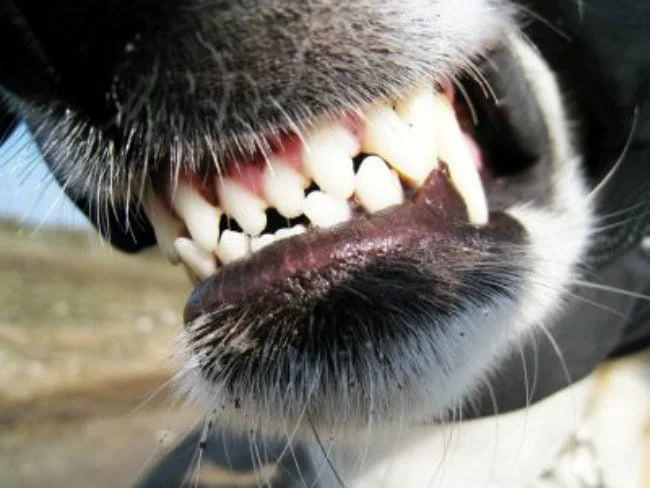Dog Bite Facts and What to Do If You Are Bitten

Some common reasons for dog bites are provocation, aggression, excitement, and health problems.
Usually, dog bites are just an accident, like a nip from a puppy going through the teething process. Sometimes, it’s just a question of being at the wrong place at the wrong time, for example, getting caught in a dog fight.
Whatever the reason for the dog bite, you should know what to do if you or a loved one is bitten. Don’t brush it aside even if the injury is minor.
Dog bites are common and sometimes fatal
Every year, there are over 4.5 million cases of dog bites in the US and about 20 to 30 of those dog bites are fatal. Most bites are caused by pets and about 20% of the cases result in injuries that require a doctor’s attention. The situation is no better in the UK.
Most victims were bitten by dogs that they were familiar with. Half of the victims were children below the age of ten. Children are more vulnerable due to their short stature. Adults are mostly bitten on the hands or legs, but children get injuries in upper parts of the body like the face or neck.
The biggest health risk from any animal bite is rabies, which can be fatal without quick treatment. Fortunately, rabies is rare in the US, UK and most other parts of Europe.
In several parts of the world, especially in Asia, Africa and South America, the risk of rabies is high and immediate medical attention is required even for minor dog bites.
Even in regions with low risk of rabies, you must be careful, especially if the animal shows strange or aggressive behavior. If you are bitten by a stray dog, don’t try to catch the animal. Instead, get in touch with animal control.
When rabies is suspected, the dog must be kept under observation and the victim must start receiving vaccinations without delay.
First aid after a dog bite
If you are living in the US or UK and you are bitten by a known dog, the course of action depends on the type, location and severity of the injury.
1. Minor cuts and scratches
Most dog bites only result in minor injuries like a cut or a gash, which can be treated at home. The bacteria in the dog’s saliva can cause an infection. The first step, therefore, is to minimize the risk of infection.
Wash the wound with plenty of water and then with hydrogen peroxide or isopropyl alcohol. Apply an external antibiotic and bandage the injury.
2. Deep (puncture) wounds
If there is excessive bleeding, the wound is very deep or if it is near a critical area like the head, neck, face, ears or genitals, call emergency medical services or visit your doctor right away.
In case of a puncture wound in a relatively harmless area like the arm or leg, allow it to bleed. If it doesn’t bleed, encourage it to bleed by pressing the sides gently. The bleeding helps remove bacteria and saliva lodged deep inside the wound.
After a couple of minutes, apply direct pressure to stop the bleeding. Wash the wound with plenty of water and soap. Deep wounds should not be treated with antiseptics, alcohol or hydrogen peroxide and should not be bandaged. If the bleeding does not stop, see a doctor or call the emergency services immediately.
When to see a doctor
Even when the injury can be treated at home, you must see a doctor immediately if there are any signs of infection like increased pain, fever, chills, swelling, redness, pus formation or swollen lymph glands. In such cases, treatment with antibiotics is essential.
Without proper treatment, there is a risk of serious complications like blood poisoning, heart complications or meningitis.
If the bite victim has any medical conditions such as liver disease or HIV that can weaken the immune system or if the person is undergoing treatment like chemotherapy or taking any medications, they must see a doctor immediately regardless of the severity of the injury.
Treatment for dog bites
When you go to the doctor, the treatment depends on the type and severity of injuries and the circumstances of the attack. The doctor will check the extent of damage and clean the wound.
Depending on the location of the injury, the doctor may decide to suture the wound or leave it open. Leaving the wound open promotes faster healing, but sutures reduce scarring. Severe cases may require plastic surgery.
You will get prescriptions for local and internal antibiotics to eliminate the possibility of infection. If there is any risk of rabies, the doctor will start you on a rabies vaccination. You may also get a shot to prevent tetanus. A repeat visit to the doctor will be required after a few days to check if you are making progress.
Obtaining compensation for dog bites
A severe dog bite can leave you in discomfort for several days and may prevent you from going to work. You may also incur significant medical expenses. If you get bitten by a dog owned by someone else, you may be entitled to compensation from the owner. This depends on local laws and the circumstances of the incident.
If you wish to seek compensation, you will need information about the dog and its owner as well as photographic evidence. Contact a lawyer specializing in dog bite cases. Your attorney will tell you the exact requirements.
In general, you will need the following:
1. Name, address and contact information of the owner and any witnesses.
2. Pictures of the wounds before and after treatment.
3. A report from the doctor explaining the nature of your injuries, treatments that you’ve undergone and any other treatments that may be required in the future.
4. A report from the local animal control authority.
Dogs make great pets. They are very affectionate and obedient if properly trained and will do everything to protect their territory and family.
Unfortunately, dogs can also inflict painful bites. Most dog bites are not dangerous if treated properly and in time.





